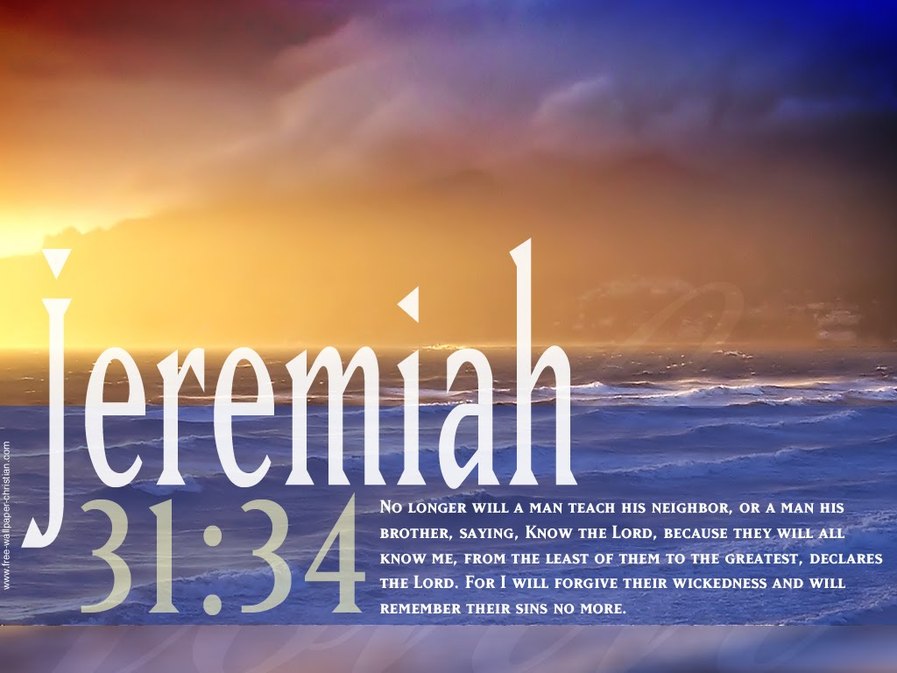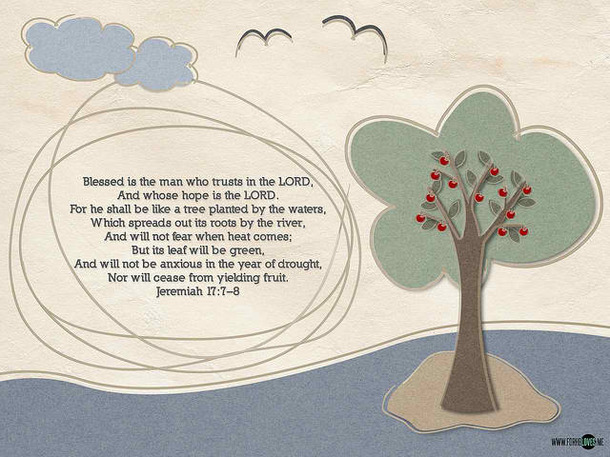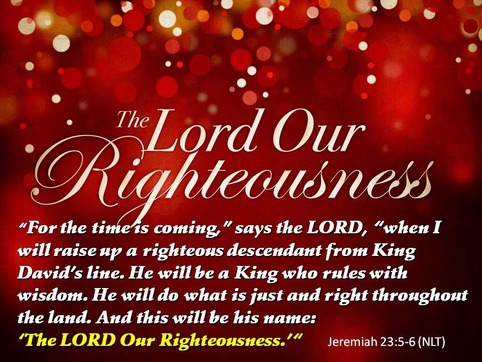The Book of Jeremiah

The book is named after the prophet whose ministry it records. Jeremiah prophesied in Judah during the reigns of Josiah and succedding kings up to the Babylonian exile. It was a perios of storm and stress, when the doom of entire nations-including Judah itself-was being sealed. After Josiah's reign, Jeremiah was often in danger from political and religious leaders who were angry because of his messages. Through all of this, God protected Jeremiah so he could continue to warn the wicked and comfort those who trusted in God.
Jeremiah was always conscious of his call from the Lord to be a prophet, and as such he proclaimed words that were spoken first by God Himself and were therefore certain of fulfillment.
Judgment is one of the all-pervasive themes in his writings, though he was careful to point out that repentance, if sincere, would postpone the inevitable.
For Jeremiah, God was ultimate. His theology conceived of the Lord as the Creator of all that exists, as all-powerful and as everywhere present. At the same time God is very much concerned about individual people and their accountability to Him.
Jeremiah was always conscious of his call from the Lord to be a prophet, and as such he proclaimed words that were spoken first by God Himself and were therefore certain of fulfillment.
Judgment is one of the all-pervasive themes in his writings, though he was careful to point out that repentance, if sincere, would postpone the inevitable.
For Jeremiah, God was ultimate. His theology conceived of the Lord as the Creator of all that exists, as all-powerful and as everywhere present. At the same time God is very much concerned about individual people and their accountability to Him.

In chapters 1-10, God calls Jeremiah and proclaims, “I have put My words in your mouth” (1:9). Jeremiah condemns Judah for their sins and attacks their faithlessness, obviously angry over their blatant sin.
Chapters 11-28, Jeremiah warned of the destruction that would be poured out on Judah. He writes about God’s hard dispense of holy anger. At one point God says, “I will not listen when they call to Me because of their
disaster” (12:14). A lot of the wickedness that angered God was the constant worship of false idols and gods, and the sacrifices they were burning to them.
From chapters 29-38, Jeremiah writes about the New Covenant and the hope that God would bring when He delivers them after the captivity. King Zedekiah who did not heed his warning throws Jeremiah into prison and then into a cistern. Nevertheless, Jeremiah warned that the King would fall into the hands of the King of Babylon.

Chapters 39-52, Jeremiah records the events of the fall of Jerusalem in 586
B.C. As many prophets had announced in the
past, the Empire of Babylon indeed laid siege to Jerusalem and the land of Judah. This completes the exile of both kingdoms, the Northern Kingdom in 722 B.C. and now the Southern Kingdom in 586 B.C. As Jeremiah had declared in 37:17, King Zedekiah was captured and his son murdered in his presence, he was
blinded, bound and dragged off to Babylon in captivity.
In chapter 50, God promises to rescue His nation from captivity. In verse
17-18 God declares, “Israel is a scattered flock, the lions have driven
them away. The first one who devoured him was the king of Assyria, and the last one who has broken his bones is Nebuchadnezzar king of Babylon. Therefore thus says the LORD of hosts, the God of Israel: Behold, I am going to punish the king of Babylon and his land,
just as I punished the king of Assyria.” The capital of Assyria was
destroyed so badly it was not discovered until the 19th century
A.D.
B.C. As many prophets had announced in the
past, the Empire of Babylon indeed laid siege to Jerusalem and the land of Judah. This completes the exile of both kingdoms, the Northern Kingdom in 722 B.C. and now the Southern Kingdom in 586 B.C. As Jeremiah had declared in 37:17, King Zedekiah was captured and his son murdered in his presence, he was
blinded, bound and dragged off to Babylon in captivity.
In chapter 50, God promises to rescue His nation from captivity. In verse
17-18 God declares, “Israel is a scattered flock, the lions have driven
them away. The first one who devoured him was the king of Assyria, and the last one who has broken his bones is Nebuchadnezzar king of Babylon. Therefore thus says the LORD of hosts, the God of Israel: Behold, I am going to punish the king of Babylon and his land,
just as I punished the king of Assyria.” The capital of Assyria was
destroyed so badly it was not discovered until the 19th century
A.D.
Foreshadowing of Jesus

Jeremiah 23:5-6 presents a prophecy of the coming Messiah, Jesus Christ. The prophet describes Him as a Branch from the house of David (Matthew 1:5), the King who would reign in wisdom and righteousness
(v. 5, Revelation 11:15). It is Christ who will finally be recognized by Israel as her true Messiah as He provides salvation for His chosen ones (v. 6; Romans 11:26).
continue to Lamentations...
(v. 5, Revelation 11:15). It is Christ who will finally be recognized by Israel as her true Messiah as He provides salvation for His chosen ones (v. 6; Romans 11:26).
continue to Lamentations...